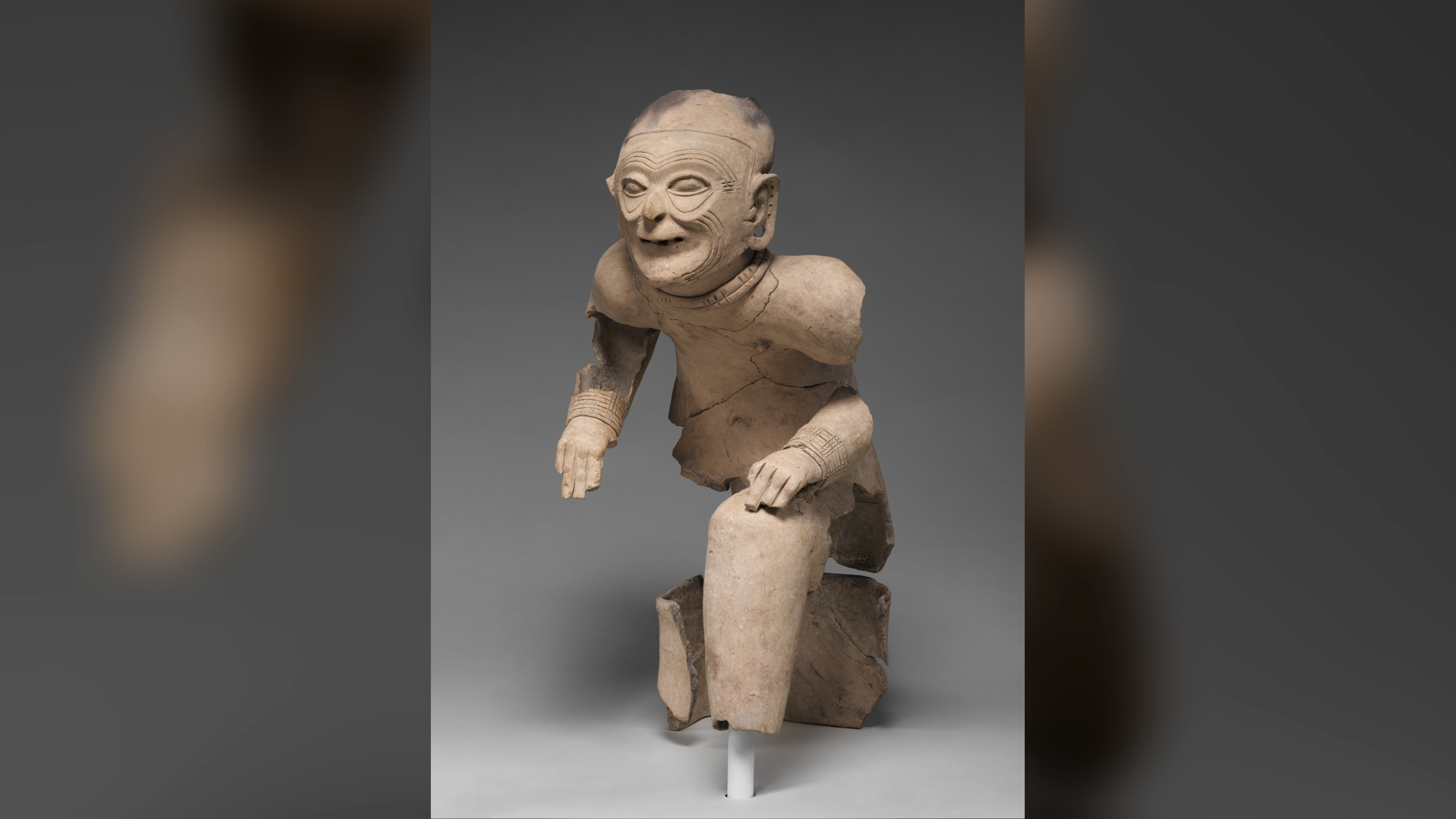More Doubt Cast on Chronic Fatigue's Link to Virus

Get the world’s most fascinating discoveries delivered straight to your inbox.
You are now subscribed
Your newsletter sign-up was successful
Want to add more newsletters?

Delivered Daily
Daily Newsletter
Sign up for the latest discoveries, groundbreaking research and fascinating breakthroughs that impact you and the wider world direct to your inbox.

Once a week
Life's Little Mysteries
Feed your curiosity with an exclusive mystery every week, solved with science and delivered direct to your inbox before it's seen anywhere else.

Once a week
How It Works
Sign up to our free science & technology newsletter for your weekly fix of fascinating articles, quick quizzes, amazing images, and more

Delivered daily
Space.com Newsletter
Breaking space news, the latest updates on rocket launches, skywatching events and more!

Once a month
Watch This Space
Sign up to our monthly entertainment newsletter to keep up with all our coverage of the latest sci-fi and space movies, tv shows, games and books.

Once a week
Night Sky This Week
Discover this week's must-see night sky events, moon phases, and stunning astrophotos. Sign up for our skywatching newsletter and explore the universe with us!
Join the club
Get full access to premium articles, exclusive features and a growing list of member rewards.
The idea that chronic fatigue syndrome may be caused by the virus named XMRV — a widely debated theory proposed a few years ago — received yet another blow today.
A new study undermines the credibility of the original report that claimed a link between XMRV and chronic fatigue syndrome, by showing that the labs that performed tests for the original report do not reliably detect the virus.
So is this the nail in the coffin for the XMRV-chronic fatigue syndrome link? Not quite.
The authors of the 2009 paper are admitting the new findings demonstrate that some of their results were invalid. But they say their conclusion still stands, and as such, they are retracting part but not all of their 2009 paper.
The new study and partial retraction are published today (Sept. 22) in the journal Science.
Problems detecting XMRV
Finding the cause of chronic fatigue syndrome has long eluded researchers, so when in 2009 a group reported that about two-thirds of patients with the mysterious disease had XMRV, a mouse virus, in their blood, they caused quite a stir.
Get the world’s most fascinating discoveries delivered straight to your inbox.
That study, published in Science, led to hope that a cause of chronic fatigue syndrome had finally been found and that treatments could follow. However, further studies were unable to find the virus in patients' blood.
In May, Science published an "expression of concern," about the 2009 paper, saying that laboratory contamination with the virus may have been to blame for the 2009 findings.
In the new study, researchers at nine different laboratories tested the blood of 15 patients previously reported to have XMRV. Of this group, 14 had chronic fatigue syndrome. The labs also tested the blood of 15 healthy people who were previously reported not to have XMRV.
Two of the labs that participated were involved in the original 2009 paper. The labs all looked for XMRV, and didn't know which samples they were testing.
Only two laboratories found any evidence of XMRV in their samples, and these were the labs involved in the 2009 paper. These labs detected XMVR in healthy people just as often as in chronic fatigue syndrome patients. And the two labs didn't agree on which samples were positive for the virus, the new study found.
Furthermore, when a single sample was divided into two or three parts, and each part tested, the results were inconsistent. And even when some samples were "spiked" with XMRV, the labs sometimes didn't detect the virus.
The findings suggest the labs involved with the 2009 paper are not using good tests for XMRV, the new study said. Their methods may not been accurate enough to specifically detect XMRV, or some of their lab samples may be contaminated with XMRV, said Michael Busch, a researcher at the Blood Systems Research Institute in San Francisco, who co-authored the new findings.
"The reliable tests are showing no evidence of infection in humans," Busch told MyHealthNewsDaily.
Future research
The new study is another piece of evidence that that "there's a serious problem with the original analysis that indicated there was a connection" between XMRV and chronic fatigue syndrome, said Mary Ann Fletcher, a professor at the University of Miami Miller School of Medicine, who has studied possible causes of chronic fatigue syndrome.
But Fletcher said the XMRV controversy is "not going to hurt the field of chronic fatigue syndrome research."
"This is the perfect example of the scientific method," in which a hypothesis is tested, a proposal is made, and other scientists try to replicate the results, Fletcher said.
Studies looking for other agents that may cause chronic fatigue syndrome are in the pipeline, Fletcher said. These studies are large and have followed people forward in time. These studies are also expected to weigh in on the XMRV-chronic fatigue syndrome link, she said.
In explaining why they are standing by their conclusion that XMRV and chronic fatigue syndrome are linked, the authors of the 2009 study claim that XMRV could be elsewhere in patients' tissues besides the blood.
The new study does not rule out this possibility, Busch acknowledged. "But original data were based on blood samples," and so any suggestion that XMRV is somewhere else would be speculating beyond the evidence shown in the 2009 paper, Busch said.
Pass it on: A 2009 finding of a link between chronic fatigue syndrome and the virus XMRV has been partly retracted.
This story was provided by MyHealthNewsDaily, a sister site to LiveScience. Follow MyHealthNewsDaily staff writer Rachael Rettner on Twitter @RachaelRettner. Find us on Facebook.

Rachael is a Live Science contributor, and was a former channel editor and senior writer for Live Science between 2010 and 2022. She has a master's degree in journalism from New York University's Science, Health and Environmental Reporting Program. She also holds a B.S. in molecular biology and an M.S. in biology from the University of California, San Diego. Her work has appeared in Scienceline, The Washington Post and Scientific American.
 Live Science Plus
Live Science Plus










